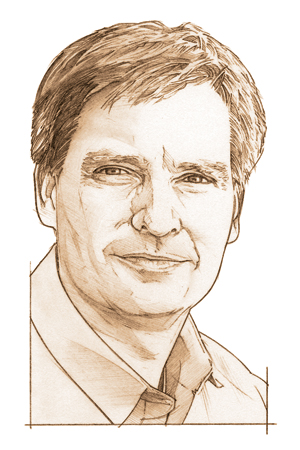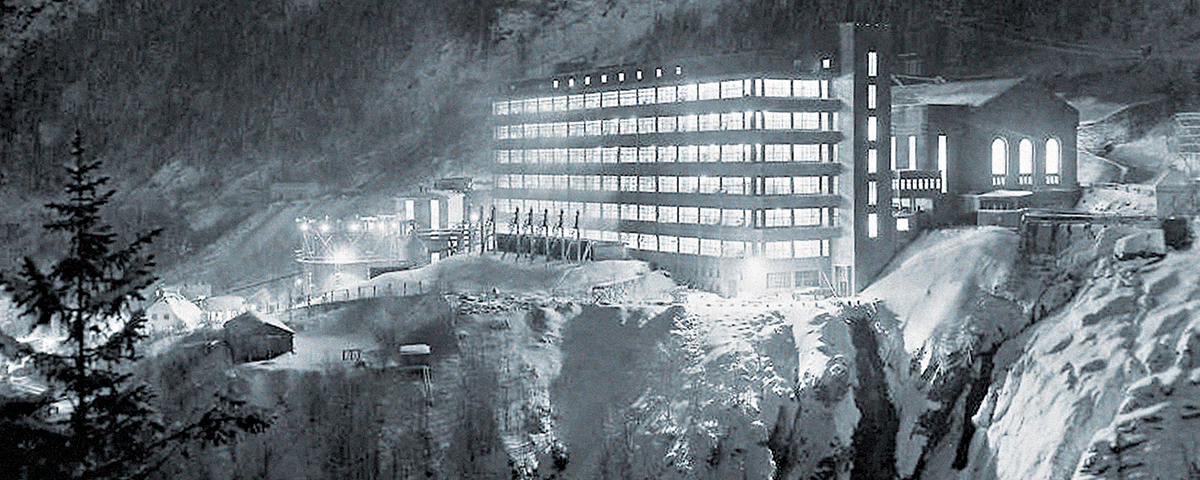
New York Times best-selling author Neal Bascomb’s nonfiction narratives run the gamut from The Perfect Mile (2004), recounting the race to break the four-minute barrier, to his recent The Winter Fortress (2016), which follows the lives of Norwegian engineers and spies who, despite the constant threat of death, thwarted Germany’s plans to build the first atomic bomb, thus helping to secure Allied victory in World War II. Bascomb’s work has been featured in documentaries, optioned for film and TV and adapted into young adult novels. He recently spoke with Military History about his new book, the importance of good research and the lessons of history.
What sparks your interest in a particular subject?
It’s really the stories themselves rather than necessarily military history or the range of other subjects I write about. It is the individuals who have experienced these remarkable events, played their roles in it, and plumbing what their motivations were and how they persevered. Most of my stories are about people doing remarkable things, and obviously in military history you have a great deal of that. I think this story [The Winter Fortress] of the Norwegians and the special operations they performed was a testament to that.
What intrigues you most about your subjects?
It’s absolutely the people—their stories, their arcs, how they change over the course of a situation, story or event. For instance, in the story of the sabotage of the German atomic bomb program you have scientists like Leif Tronstad, who basically had no military experience and over the course of the war transformed himself into this spymaster. It’s fascinating to figure out how he managed to do that, what motivated him, the challenges he faced and how he changed over the course of the war.
Did you experience any revelations while researching the book?
One of the most fascinating experiences was to go out to the countryside with the sons of the saboteurs to where the Norwegians conducted their operations. We stayed in their cabins, I skied in their old skis, I shot their guns, I froze my ass off, and I got a tiny little glimpse of the challenges in the weather and terrain they had to navigate. That informed the writing beyond measure.
Explain your approach to research.
Primary source material is everything. I want to know what people were thinking, what they were feeling, what they were experiencing—the visceral details of how their stories unfolded. It’s human. So it’s less to me about the grand arcs of military history. What I try to get at in these books is that these were everyday people. The heroes of The Winter Fortress did not emerge from the womb in capes and boots. They were people with fears and challenges, with moments where they wanted to give up. You can’t really write about those moments unless you have material saying that’s what they were thinking. Research is about finding those moments.
Does any one topic have a hold on you?
I don’t want to call myself indiscriminate, but I’m sort of always in love with the story I’m telling, and they are in different realms. For me that’s part of the thrill—that I don’t just write about World War II, or about sports or any other of a range of subjects. It keeps the writing fresh, the stories fresh.
However, it is harder, because every time I start a new book, I’m essentially learning a whole new field. If I just wrote about World War I, for example, it would be a lot easier.
You chose a World War I POW escape story for your next book. What can readers expect?
I think that of all my books this one has the most compelling cast of characters. One soldier I’m writing about is Will Harvey, a soldier-poet, and his journey from war hero to prisoner—someone in the deepest levels of despair—to how he emerged from the Holzminden POW camp. The individual stories you have here, in sort of the Alcatraz of Germany during World War I, are fascinating. It has all these quirky, interesting characters, as well as the schemes and plots the soldiers put together in order to pull off this escape.
Did that escape have any bearing on World War II’s “Great Escape”?
They are intimately tied together. After the war one of the individuals who was part of the Holzminden escape, a pilot named Bennett, volunteered to be part of the newly formed MI9, the World War II British escape and evasion service. Throughout the war he traveled in secret to air bases to meet with pilots and other crews and give them lessons on how to escape if they got shot down. So the great tunnel of World War II was in every way a child of Holzminden.
Is there an untapped subject you’d particularly like to cover?
I have trouble looking beyond what I’m doing now, but I am interested in doing something more contemporary. As much as I love the period details and culture of this World War I story, so much power comes from being able to actually interview people, something not available to me in this latest book. I would love to be able to do something that’s happened within the last few years.
Who are your favorite military historians?
Stephen Ambrose is one, but I’m also influenced by other writers. One of my favorites is Tom Wolfe. The ability to get into a scene, a moment and a culture is something Wolfe did brilliantly in his military history The Right Stuff. A number of writers are on my shelf, so I hate to pick one over the other.
What lessons does history teach us?
I’ll put it in terms of The Winter Fortress: These saboteurs were not unalloyed heroes at the start. Few of them had any military background or training. Their country was invaded, and they decided they needed to fight for their country and for their freedom. What I hope people come away with is exactly that—that ordinary people can do extraordinary things if they are properly motivated and rise to the occasion. The book is about how that process happens and what exactly motivates people. MH





